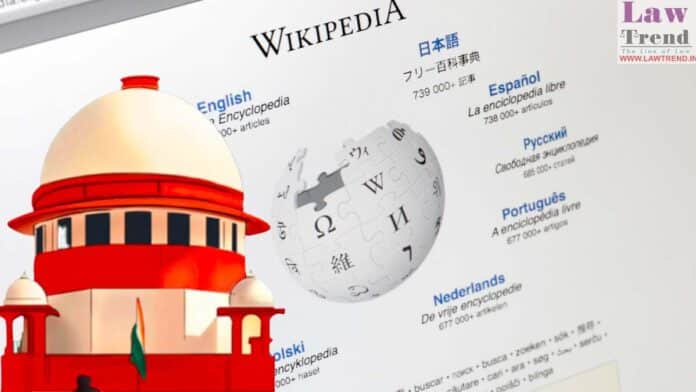The Supreme Court on Friday quashed the Delhi High Court’s directive to delete a Wikipedia page related to defamation proceedings initiated by news agency Asian News International (ANI) against the Wikimedia Foundation, holding that judicial institutions must remain open to public and media scrutiny.
A Bench comprising Justice Abhay S. Oka and Justice Ujjal Bhuyan emphasised the democratic principle of transparency in judicial functioning and cautioned against curbing free reporting. “Courts as public institutions should always be open to the public, and the issues which are even sub judice can be debated by the public and the press,” the Court held.
Reading from the judgment, Justice Bhuyan stated, “It is not the duty of the Court to tell the media to delete this and take that down. Both the judiciary and the media are the foundational pillars of democracy, which is a basic feature of the Constitution. For a liberal democracy to thrive, both should supplement each other.”
Background
The Wikimedia Foundation had approached the Supreme Court challenging a Delhi High Court order which directed the removal of a Wikipedia page titled “Asian News International v. Wikimedia Foundation”. The High Court had objected to statements on the page, particularly one suggesting that a judge had threatened to shut down Wikipedia in India — remarks the Court considered prima facie contemptuous.
The Supreme Court, while issuing notice in the matter, questioned how the High Court could have issued such a direction in the absence of any proven contempt. The Bench expressed concern over the approach taken by the High Court in equating critical content with interference in judicial proceedings.
The Dispute
The original dispute arose from a defamation suit filed by ANI against Wikimedia, alleging that the Wikipedia article titled “Asian News International” carried defamatory content regarding ANI’s editorial practices and credibility. ANI sought Rs. 2 crore in damages and removal of the content.
Following the initiation of contempt proceedings, Wikimedia removed a separate page titled “Asian News International v. Wikimedia Foundation”, leading to the Delhi High Court closing ANI’s contempt plea on November 11, 2024.
In the ongoing defamation case, a single judge of the Delhi High Court had granted interim relief to ANI, directing Wikimedia to remove allegedly defamatory content and lifting protection status from the ANI Wikipedia page. A division bench of the High Court upheld part of the order but stayed the enforcement of directions concerning page protection and user restrictions.
Supreme Court’s Observations
The Supreme Court found fault with the sweeping nature of the High Court’s directions, particularly the order to “remove all false, misleading and defamatory content,” calling it “very broadly worded” and “not capable of being implemented.”
Wikimedia had argued that the content in question was contributed by independent users and that the statements referred to were drawn from published media reports, including one by The Indian Express.
The apex court reiterated that free expression, especially in matters relating to judicial proceedings, must be preserved unless there is clear and established contempt. It ultimately set aside the High Court’s takedown directive, thereby affirming the importance of open public discourse in a constitutional democracy.




